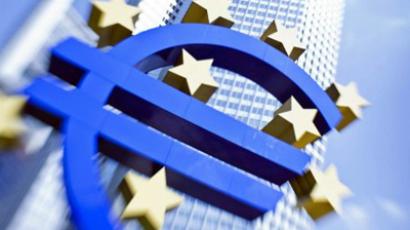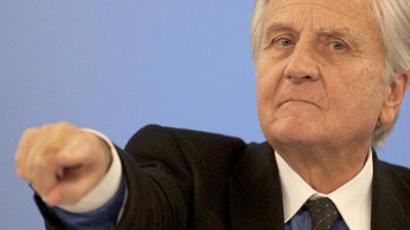Can ECB's Super Mario make room for Rome?
The European Central Bank has pushed the director’s chair to Mario Draghi, the ex-chief of the Bank of Italy. The chances for Draghi, who succeeds Jean-Claude Trichet, of playing up to Rome’s financial interests are slim, says Professor Arjo Klamer.
The main intrigue with the new appointment is whether the ECB will continue buying the sovereign bonds of countries such as Italy and Spain. Jean-Claude Trichet, prior to stepping down from his high post, said once the EU’s bailout fund (the European Financial Stability Facility) is fully on the rails, the bank will suspend the bond buying program.Though Draghi previous week gave no indication that the ECB would drop its liquidity-related “non-standard measures,” he nevertheless assured the markets that the bank would not quit buying bonds. This was feverishly welcomed by French President Nicolas Sarkozy, who expressed hope the ECB will provide a “wall of money” to prevent the spread of debt contagion in the EU. “Draghi is known as a technocrat. You will think he will be even more principal than Trichet and the ECB will try to follow a very strict course holding on to its assignment to control inflation and being reluctant to step into salvage of governments who were excessive in their debts,” said Arjo Klamer, a professor of economics at Erasmus University in Rotterdam. Since May 2010, the ECB has bought 173.5 billion euros of bonds in “non-standard measures,” including debt obligations of Greece, Ireland, Portugal, Italy and Spain. The program, welcomed by Sarkozy, is strongly opposed by some central bankers, especially in Germany.The ECB now functions under great political pressure, but Klamer does not think Draghi would use the position to pay special attention to the interests of the Italian economy.“Draghi might continue Trichet’s course, taking unusual steps in an attempt to stem an almost inevitable crisis,” said Klamer, adding that most Sarkozy’s attempts to influence Trichet into taking pro-Paris decisions failed. Besides the liquidity issue, the Frankfurt-based central bank faces a growing need to review interest rates and price stability. Draghi also inherits from Trichet the task to stabilize markets and support the eurozone, which is plunging deeper into financial chaos. Draghi, 64, the ex-governor of the Bank of Italy and a former banker at Goldman Sachs Group Inc., was confirmed by EU leaders as Trichet’s successor on June 24. The dispute about who should take the ECB directorship strained relations between France and Italy, as Paris did not want to lose a Frenchman from the position.Draghi is to chair a meeting of the ECB’s governing council for the first time on November 3, but the bailout referendum proposed in Greece by Prime Minister George Papandreou might bring changes to Draghi’s agenda.














